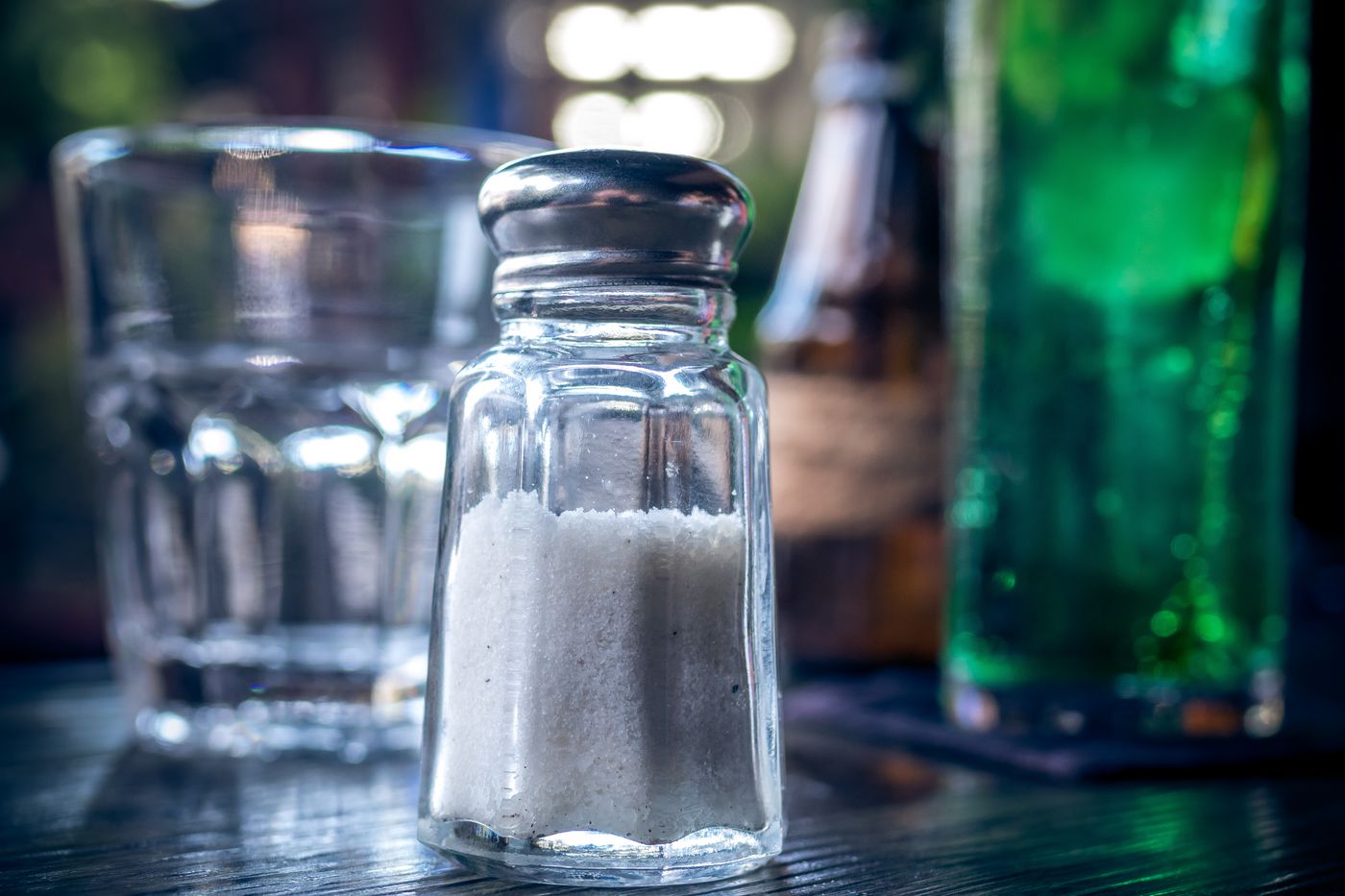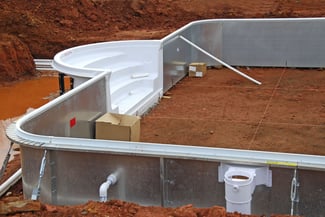
Top 5 Salt Water Chlorine Generator Problems
Pool Maintenance | Options and Accessories
Let me start off by saying that we are huge proponents of salt water chlorine generators and do recommend them to most customers.
However, there is no such thing as a perfect system.
The purpose of this article is to bring to light several of the issues we’ve seen with salt water chlorine systems after installing close to 1,000 of them over the past 8 or 9 years.
As you’ll see, most of the issues we’ve encountered haven’t been with the actual salt water systems, but with the impact that the system has on other pool components.
1. Corroded handrail and ladder anchors
The high salinity level of the water does cause galvanized deck anchors to corrode prematurely.
We’ve found that within 4 to 5 years of installing a salt system, galvanized deck anchors will corrode to a point where it is difficult or impossible to remove the handrail or ladder.
The solution to this problem is to use brass anchors as opposed to galvanized steel.
If you are considering installing a salt system on an existing pool with galvanized deck anchors, it would be a good idea to spray them with some type of corrosion inhibitor to slow the deterioration process.
If you are having a new pool built, make sure the contractor uses brass anchors.
2. High chlorine
One of the greatest advantages of salt water systems is that you reap the benefits of a chlorine pool without the adverse effects associated with chlorine.
This is wonderful…no strong smell, no burning eyes, etc.
The disadvantage is that it’s possible to generate a high level of chlorine in the pool and never know it.
This can have an adverse effect on the pool shell, pool equipment, etc.
To keep this from happening, simply test chlorine levels on a weekly basis.
3. Cell replacement
Although salt chlorinators typically cost less during a given season than chlorine, there will come a day when the cell, which is the component of the machine that converts salt to chlorine, will fail.
The cost of cell replacement may off-set the savings experienced over the previous years.
The average cost of cell replacement is $700–$1,100 and the average life expectancy is 3-7 years.
There are many wonderful advantages of salt chlorine systems, but my experience is that cost savings is not one of them in the long run.
Read Next: Inground Saltwater Pool Cost: Salt, Cells, Generators, and More
4. Tough on auto covers
There’s simply no getting around this one. Salt systems are tough on the metal components of automatic covers.
Many of the major components of “auto covers” such as the track system, the tube the cover rolls up on, the hardware, and the leading edge are all made of metal.
The best way to prevent premature corrosion of these components is to periodically rinse them with fresh water from a garden hose.
5. Corrodes vinyl liner pool walls
This applies to inground and above ground vinyl liner pools with metal walls.
Most vinyl pool builders today use polymer/plastic walls, so this is not so much an issue with new construction of liner pools.
However, if you are considering building a vinyl liner pool with a salt system, do yourself a huge favor and avoid metal walls like the plague!
Regarding above ground pools, it’s debatable whether the low-maintenance aspects of the system outweigh the impact that the salt water has on the metal wall structure of the pool.
After doing many liner replacements on above ground pools with and without salt water systems, I can tell you that there is a significant difference in the amount of corrosion on the wall after a very short period of time.
It’s a question of how long you want your pool to last.
In my estimation, you’ll get 10–15 years out of an above ground pool with a salt system as opposed to 20–25 years without.

Taking all of these issues into consideration, you need to ask yourself the question:
Do the benefits of salt water chlorine generators outweigh these problems?
In my opinion, the answer is a resounding “Yes!”
Yes, there are cases where salt chlorine generators may not be the best alternative. But for the majority of pool owners throughout the world, it’s tough to beat the superior water quality and low maintenance of a salt water pool.
Thanks for visiting; comments and questions are always welcome!
Up Next:
Fiberglass FAQ: 14 Most Common Questions about Fiberglass Pools
Inground Pool Kits 101: Types, Costs, Tips
4 Things to Consider Before Establishing Your Pool Budget
Editor's note: This blog article was updated on January 20, 2020.




